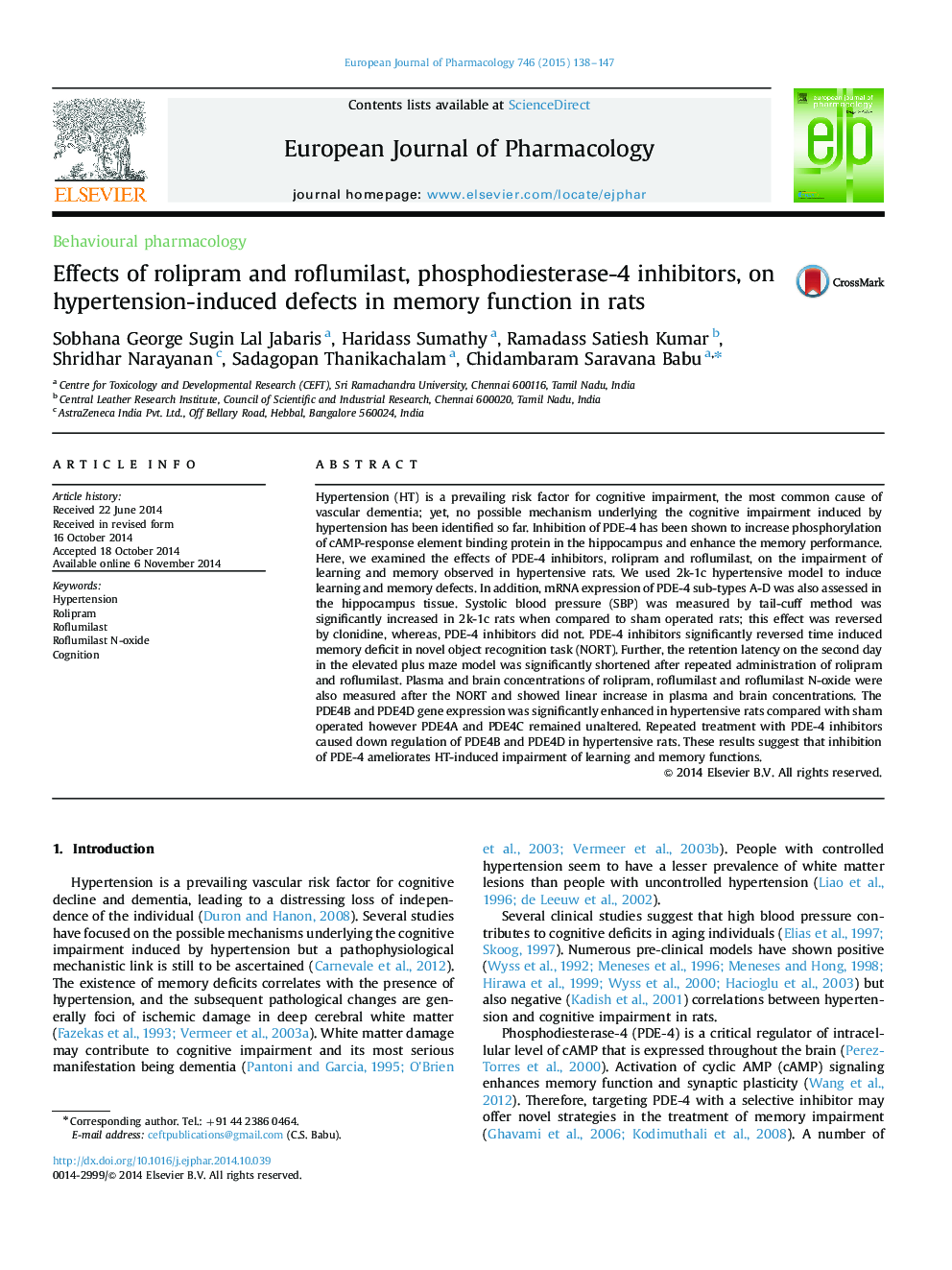| Article ID | Journal | Published Year | Pages | File Type |
|---|---|---|---|---|
| 2531567 | European Journal of Pharmacology | 2015 | 10 Pages |
Hypertension (HT) is a prevailing risk factor for cognitive impairment, the most common cause of vascular dementia; yet, no possible mechanism underlying the cognitive impairment induced by hypertension has been identified so far. Inhibition of PDE-4 has been shown to increase phosphorylation of cAMP-response element binding protein in the hippocampus and enhance the memory performance. Here, we examined the effects of PDE-4 inhibitors, rolipram and roflumilast, on the impairment of learning and memory observed in hypertensive rats. We used 2k-1c hypertensive model to induce learning and memory defects. In addition, mRNA expression of PDE-4 sub-types A-D was also assessed in the hippocampus tissue. Systolic blood pressure (SBP) was measured by tail-cuff method was significantly increased in 2k-1c rats when compared to sham operated rats; this effect was reversed by clonidine, whereas, PDE-4 inhibitors did not. PDE-4 inhibitors significantly reversed time induced memory deficit in novel object recognition task (NORT). Further, the retention latency on the second day in the elevated plus maze model was significantly shortened after repeated administration of rolipram and roflumilast. Plasma and brain concentrations of rolipram, roflumilast and roflumilast N-oxide were also measured after the NORT and showed linear increase in plasma and brain concentrations. The PDE4B and PDE4D gene expression was significantly enhanced in hypertensive rats compared with sham operated however PDE4A and PDE4C remained unaltered. Repeated treatment with PDE-4 inhibitors caused down regulation of PDE4B and PDE4D in hypertensive rats. These results suggest that inhibition of PDE-4 ameliorates HT-induced impairment of learning and memory functions.
